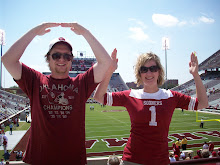"there are things we can know absolutely and objectively."
this is a statement rejected by most of the postmodern world. why is this so difficult for those of us that are postmodern? i guess you could start with the definitions of the words "absolute" and "objective."
"absolute" as a noun is defined- a) something that is free from any condition or restriction--- b) something that is independant of some or all relations--- c)something that is perfect or complete or d) something that is not dependent upon external conditions for its existence or for its specific nature, size, etc.
as an adjective a) not mixed or adulterated--- b) free from restriction or limitation--- c) viewed independently, not relative or comparative--- d) positive, certain.
"objective" a) not being influenced by personal feelings, interpretations or prejudice--- b) intent upon or dealing with things external to the mind
now, the difficulty here is that some definitions for these words are very acceptable. and, indeed, when having a discussion with someone, they very often switch their personal definitions of these words at will without even consciously acknowledging it. for example, someone will say that something is "absolute" such as, "it is absolutely wrong to rape." in one sense, this is true. "it is positively wrong to rape." however, if one said, "it is free from condition or restriction wrong to rape," you have inherently contradicted yourself within your sentence. the word "rape" is a conditional word. it means "forced sex" so there is within the word a condition or restriction. so this absolute statement in that sense is very relative. and so it goes.
now the difficulty is that most do not realize the definitions that they use. they try to oversimplify their language so that things are easier to grasp, easier to understand, less of a struggle. but in fact it is the struggle that improves us as people. the struggle is the very thing that draws us closer to the heart of god. when we acknowledge that we cannot figure it all out, that we cannot reduce the world to "absolute" statements, we are admitting our own limitations. indeed, it almost sets us on the level of the creator to believe that we can in fact know things "absolutely" because we are very much not "perfect or complete."
"objective." it is very much possible to know something as an object. i see my laptop. i see the coke machine in front of me. those are objects. however, to know something "objectively" is very different. is the coke machine that i see the same as the one that a man with colorblindness sees? in a way, but in a way, it is completely different. it is impossible for us to be "objective" in regards to truth, because we ourselves are never objective. i can only see the world through my eyes, with my brain, feel it with my hands, smell it with my nose. the only past experiences i have to draw on are my own. i can indeed, hear of another's past experience, but that is only heard through my personal ears, then filtered through my brain, by way of my past experience with the world and how it works. so, when one speaks of being "objective" it is a great thing to strive for, but something completely unattainable.
as a postmodern, i reject things like certainty, because i am not sure how i can be certain. i can be pretty sure, but as long as i live from a flawed flesh, how can i trust it? or in another way, if i could be so certain that god was god, that jesus loved me, where would faith come in? if i could be completely certain that my wife would never leave me, which i am fairly certain, why would i ever have to trust her? indeed, we would never have to risk if we could be so certain. and indeed, it is very natural to not want to risk. however, it is necessary. we must stake all we have on the promises of jesus, on the hope that he was telling the truth that he will in fact return to redeem us fully, because if we could be certain, we would not require faith or trust.
then again, i could be wrong. i do question certainty.
4.03.2007
Subscribe to:
Post Comments (Atom)

No comments:
Post a Comment